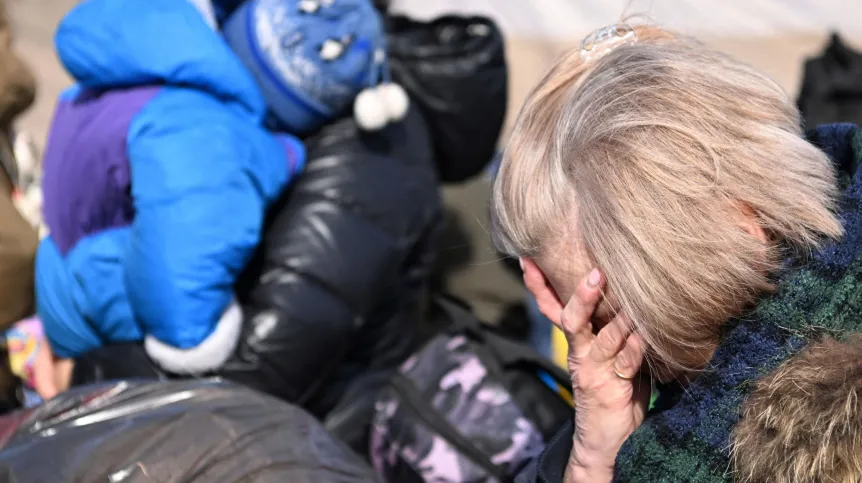
The trauma Ukrainians experience can be transmitted to future generations, warn Polish and American scientists.
They added that the Russian invasion of Ukraine may have alarming implications for global mental health.
According to Dr. Ali Jawaid and PhD student Magdalena Gomółka from the Nencki Institute of Experimental Biology, and Dr. Anastasiia Timmer from California State University, Northridge (USA) since Vladimir Putin's invasion of Ukraine on February 24, 2022, Ukrainians have been facing 'complex trauma’.
This includes fear of losing life and/or freedom, grief, separation from families, social isolation, social disruption and forced migration which increases the risk of post-traumatic stress disorder, depression, and anxiety disorders, as well as physical ailments.
Writing in Nature Human Behaviour the scientists said: “Ukrainian trauma at Putin's hand can be epigenetically passed on to future generations.
“When these traumas occur in combination, the effect is amplified and the signatures of trauma may even appear in the germline.”
They added that while trauma is a common experience for Ukrainians and relief aid-workers, it also affects Russians who protest and bear the consequences.
The scientists said: “Cumulatively, we fear that a large-scale mental health crisis is impending. Targeted investigations and preparatory measures should be implemented by health-care systems and relief organizations to provide mental health support to vulnerable populations without further delay.”
The full version of the text published in Nature is available on the website.
PAP - Science in Poland, Karolina Duszczyk
kol/ zan/ kap/
tr. RL













